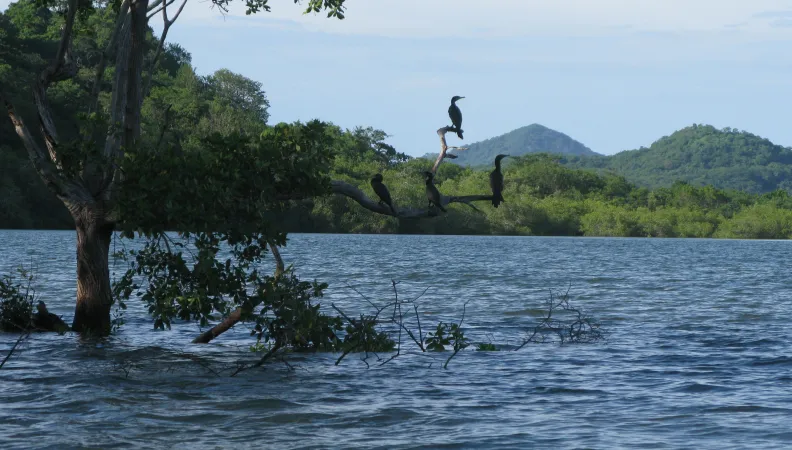Share the page
Restoration, conservation and sustainable management of mangroves to combat global warming
Project


-
Project start date
-
Status
Completed
-
Estimated date of project termination
-
-
Project financing date
-
-
Financing duration
-
6,5 years
-
Type of program
-
FFEM
-
Global financing amount
-
6 650 000 €
-
FFEM financing amount
-
1 270 000 €
-
Project lead member institution(s)
-
Ministry for Europe and Foreign Affairs
-
Country and region
-
Benin
-
Location
-
Costa Rica, Bénin
-
Type of financing
-
Grant
-
Partners
-
FAO, GIZ, UNDP, EPOMEX Institute
-
Beneficiaries
-
Costa Rica's National System of Conservation Areas (SINAC)


In decline, mangroves play a crucial role in the fight against global warming and their resources are central to the lives of the local communities in Costa Rica and Benin. By supporting this restoration project on pilot mangrove sites, the FFEM hopes to help capitalize on the knowledge acquired in this field.
Context
Costa Rica and Benin are two tropical countries possessing extensive coastal wetlands that favour mangroves, ecosystems es-sential to the survival of the rich biodiversity they shelter. They also play a key role in mitigating the effects of climate change. Local communities also benefit from a wide range of resources that are indispensable to their food security, and to the area's economy. Global warming and relentless man-made pressures are jeopardising these fragile ecosystems. Between 1980 and 2006, 35% of mangroves were lost in Costa Rica, and a quarter of their coverage disappeared in Benin. To reverse this trend, this project seeks to simultaneously restore mangroves in both countries and put in place the conditions necessary for their sustain-able management, through skills transfer between Mexico, Costa Rica and Benin, ensuring the trial project is assessed and then reproducible. It also supports Costa Rica’s Social Blue Carbon national strategy, including the development of planning tools to allow the evaluation of the benefits derived from preserving mangrove ecosystems, while ensuring they are sustainably man-aged.
Description
The project has four components:
- Running the pilot restoration of four mangrove sites, three in Costa Rica and one in Benin, using an end-to-end envi-ronmental diagnostic process to enable natural regeneration.
- Raising awareness of the local communities about the mangroves through a programme of education and support for related sustainable economic activities.
- Strengthening Costa Rica’s institutional capabilities in the sustainable management of coastal wetlands through the development and adoption of public policy - including the Social Blue Carbon national strategy - and planning tools.
- Developing scientific capitalization by working with the academic sector, while encouraging the international sharing of experience.
Outcomes
- Improving the ability of Costa Rica and Benin to adapt to climate change by factoring-in the mangrove ecosystems as an adaptation tool
- Developing a framework for replicability at large scale, based on existing south-south cooperation
- Contributing to the objective of carbon neutrality targeted by Costa Rica for 2021
Innovative & exemplary character
The activities implemented in the pilot sites and their scientific monitoring of the mangroves aim for large-scale replicability of the most successful restoration experiences.
The experimental monitoring system proposed by the EPOMEX Institute contributes to this particularly innovative approach.
Find out more about the 'News from Africa' project by watching the video on TV5 Monde
Watch the video of the project in Costa Rica
Sustainable Development Goals
ODD13 Climate action

ODD14 Life below water



